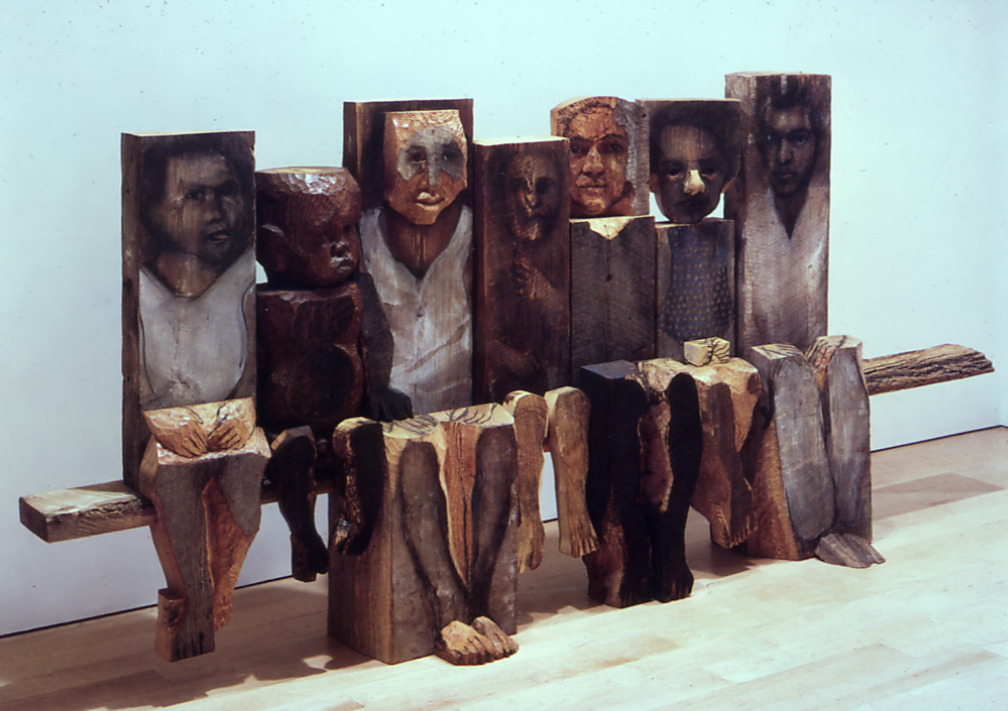Global Dialogues and the wisdom of young Oumarou

“You don’t need those guys. Just forge ahead with those who believe.”
It was early 2001, and the Pan-African Film Festival (FESPACO) was in full swing in Ouagadougou, Burkina Faso, where Global Dialogues was based for over a decade. The continent’s finest films were being screened in theaters all across a city filled with triple excitement: film professionals showcasing their work and making connections to bring other dreams to life; cinema lovers from all continents reveling in the unique pleasures of one of the world’s greatest cultural events; and local people working proudly and tirelessly to make sure that the event was enjoyable and beneficial for all.
While I was sitting in an outdoor café between screenings, a young Burkinabè man walked up, introduced himself as Oumarou and asked if he could conduct an interview about Global Dialogues. He explained that he was a friend and former classmate of Olga Kiswendsida Ouédraogo, who is an international winner of the first Global Dialogues contest in 1997 who had gone on to play many crucial roles in the project: coordinating the contest and jury in Burkina Faso; overseeing the lip-sync dubbing of some of our films into the Moorè language; creating radio versions of the films in multiple languages; and even co-directing two Global Dialogues films herself.
Oumarou and I left the noisy café and sat down on a bench. He apologized for being so nervous, saying that he was still in college and that this was among the first interviews he’d ever done. He then switched his microphone on and proceeded to perform like a seasoned journalist, working from a list of questions he’d prepared in detail. Oumarou asked about Global Dialogues’ history, about the story-creating contests, the juries, the films….
And then he asked about the challenges we face in our work, which at that time focused almost exclusively on HIV/AIDS. That very morning, I’d learned of the recent AIDS-related death of a mother of six in the area, by all accounts a death which, like so many others, had been hastened by the misappropriation of monies earmarked for treatment and care. Oumarou had hit a nerve with his question about challenges. I asked him to turn off his microphone and proceeded to go on a ten-minute tirade against those who view the response to HIV/AIDS as a golden goose, a great opportunity to make a lot of money, often at the expense of people living with HIV and their families.
It was surely an odd sight: a wise, calm, dignified, young Burkinabè man listening patiently as a guy a generation older was flying off on a diatribe that was completely devoid of calm and dignity. I still hadn’t learned my lesson: American-style angry rants are simply bizarre to Sahelian eyes and ears, as well being completely ineffective, succeeding only at making the person ranting to appear childish.
Oumarou listened patiently until I finally calmed down and stopped talking. He allowed there to be a long period of silence, then leaned forward like an old friend and gave me a gift of wisdom for which I’ll forever be grateful:
“My brother, it’s OK. You don’t need those guys. Just forge ahead with those who believe.”
In those few, enlightened words, Oumarou had established an indelible core principle of Global Dialogues. As we build our team and carry out our work, we pointedly avoid and protect the project from “those guys” whose intentions have little or nothing to do with bringing about a healthier, more peaceful planet. It doesn’t matter who they are or the position they occupy in a given community or organization. Oumarou is right: we simply don’t need them.
“Those who believe”, in our eyes, are people of many different spiritual views who are of singular dedication, passion, compassion, partnership-orientation and integrity who will stop at nothing to put an end to the public health and societal woes that afflict their communities. More often than not, they work in small grass-roots organizations. They commonly face funding problems in their countries precisely because they refuse to play the corruption game, but when empowered, they are the most effective, formidable partners one can imagine. They are the heart of the Global Dialogues family.
Thank you, Oumarou. We think of you and your wisdom every day.
Daniel Enger, Executive Director, Global Dialogues


 top
top